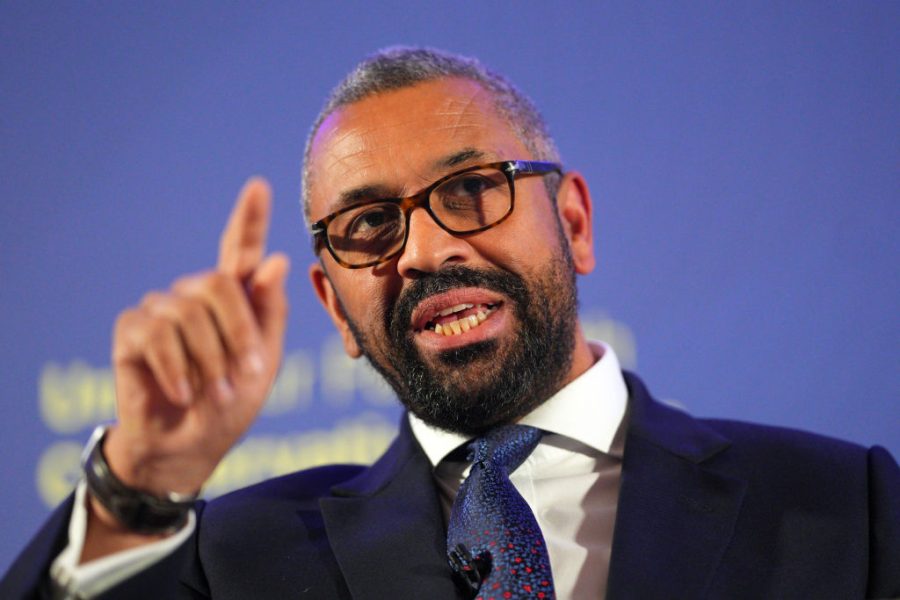Back in the 1980s, the American business guru Tom Peters came up with the advice to companies to ‘under-promise and over-deliver’. The idea behind it was that there was an asymmetry in customer responses to service standards which depended on what they had been guaranteed. A long delivery time could, for example, be perfectly acceptable to them unless they had been promised the purchased item sooner, in which case the reputation of the company involved would be badly harmed. The very best outcome for a company’s reputation was often when it set seemingly modest goals for itself in public but then outperformed them.
The government’s failure to sustain any progress on the issue was causing public outrage
The Tory leadership contender James Cleverly seems to have imbibed from this literature, which was all the rage back in the day but is now inevitably tainted by the impact of comic fictional characters such as David Brent (‘There is no “I” in team, but there’s a “ME” if you look hard enough’). Cleverly has decreed that Rishi Sunak should never have promised to ‘stop the boats’ as one of his five key pledges to the electorate. His reasoning is as follows: ‘The self-imposed yardstick was that even one boat was a failure, and that was an unachievable target.’ In other words, Sunak made the mistake of over-promising and under-delivering.
The implication of Cleverly’s criticism is that without the absolutist pledge, the government’s performance on combating the Channel boats could have been sold as a qualified success. Yet when he was home secretary, from November 2023 to the election in early July, the government’s record on the issue was a failure by any metric. While numbers had fallen by 36 per cent through 2023, compared to 2022, they then rose again strongly in the first half of 2024.
For example, at the end of May this year, the fact-checkers Full Fact found that as of May 26 – just after the election had been called – there had been 10,448 recorded illegal arrivals via Channel dinghy, a 38 per cent increase on the same period in 2023. Cleverly’s period in charge at the Home Office simply produced rubbish results on an issue that Sunak had correctly identified as one of the highest concerns for electors who might otherwise consider voting Tory.
It wasn’t the terms of the pledge that damned the Sunak administration, but its failure to sustain any progress whatsoever on an issue that was causing public outrage. The public might well have been reasonably satisfied had Sunak’s ‘stretch target’ (another grim piece of jargon from the literature of management) led to, say, an 80 per cent reduction in crossings. But it didn’t.
Without wishing to turn his surname into a pun, it is hard to avoid the conclusion that Cleverly’s interpretation casts serious doubt on his conceptual political intelligence. If one compares his approach on the issue to that of Robert Jenrick, who resigned as immigration minister shortly after Cleverly’s arrival at the Home Office, it is as different as chalk and cheese.
Cleverly resides in the comfortable fiction of incremental, art-of-the-possible improvements which he never actually achieved. Jenrick, on the other hand, is relentless in identifying the issue as profoundly corroding the basic social contract and being of foundational importance to the nation’s voters. He had the foresight to understand that Sunak’s policy prescriptions were inadequate and bound to fail – and also the gumption to resign. Now, he is hammering home his own radical action plan.
If Jenrick does become the next Tory leader, as looks likely, it will largely be down to his having achieved a rare scoop of interpretation from within the governing class: he saw the politics of immigration from the point of view of his constituents and then subjected elite conventional wisdom to searching analysis. Having come to appreciate its deficiencies he then instigated a new direction and pursued it with vigour.
Is Jenrick sincere? Well, his undertakings on leaving the ECHR and scrapping the Blair Human Rights Act are so unqualified that any subsequent policy U-turn by him would be suicidal. Compared to the Cleverly approach – the equivalent of ‘leave it with me and I’ll see what I can do’ – he is streets ahead and deserves to be too.








Comments